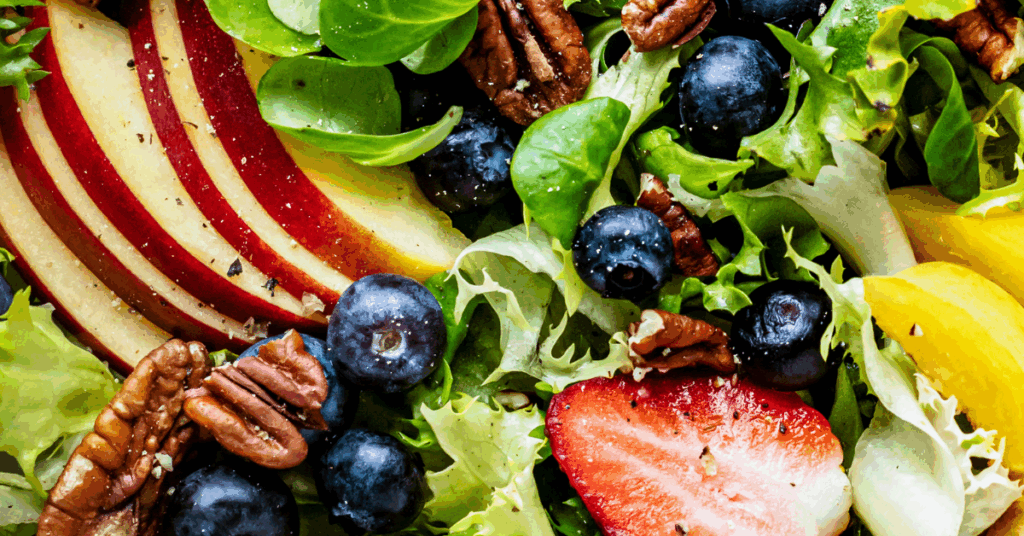Proper nutrition is not just a supplement to addiction treatment. At DreamLife Recovery, nutrition therapy is regarded as a core pillar that supports both physical restoration and emotional healing during recovery. Substance use often leads to nutrient deficiencies, a weakened immune system, and impaired organ function, all of which can hinder the journey to lasting sobriety.
Why Addiction Recovery Requires Nutrition Therapy
Chronic substance use disrupts the body’s ability to absorb, process, and use nutrients, leading to malnutrition and related physical decline. Many people in recovery arrive at treatment undernourished, low in crucial vitamins and minerals, experiencing erratic blood sugar levels and cravings that can increase relapse risk.
The clinical team at DreamLife Recovery works with every client to reverse the physical damage caused by addiction. Proper nutrition helps:
- Rebuild damaged tissues and muscles
- Support healthy brain function and neurotransmitter balance
- Strengthen the immune system and reduce illness
- Stabilize blood sugar, mood, and energy
Our nutrition therapy includes carefully designed meals, supervised by dietary professionals, that are tailored according to each person’s health background, existing conditions, and preferences. Education on nutrition is woven into daily living, so individuals gain lifelong skills for self-care and independent living after treatment.
The Connection Between Nutrition and Mental Health
A well-nourished body is essential for balanced mood and emotional resilience, which are both vital for recovery success. Many nutrients play a direct role in the brain’s production of neurotransmitters like serotonin and dopamine. Deficiencies in B vitamins, vitamin D, zinc, and magnesium—common among substance users—are associated with fatigue, anxiety, and depression.
DreamLife Recovery prioritizes foods rich in key nutrients:
- Lean proteins (poultry, fish, legumes) for muscle repair and neurotransmitter health
- Whole grains and complex carbohydrates for steady blood sugar and lasting energy
- Fresh fruits and vegetables loaded with antioxidants and fiber
- Healthy fats, such as those from nuts, seeds, and avocados, to support brain health
These foods help the body recover from the toxic effects of substance use, improve focus, boost mood, and foster the determination needed for a sustainable recovery.
Managing Cravings and Withdrawal Through Diet
Withdrawal and early sobriety can bring about intense cravings and mood swings. Strategic nutrition therapy addresses these symptoms by:
- Increasing fiber and protein to keep clients feeling fuller longer
- Reducing intake of sugar and processed foods that cause spikes and crashes in energy and mood
- Providing important electrolytes and hydration support, especially during detox phases
- Teaching clients how to identify and avoid foods that act as relapse triggers for their unique health profiles
Clients are encouraged to create regular meal routines and embrace new, positive relationships with food, which becomes a foundation for both emotional and physical stability.
A Holistic Approach to Healing
DreamLife Recovery goes beyond just meals. The clinical nutrition program is combined with holistic modalities including mindfulness, stress management, group therapy, and individualized aftercare plans. Every client receives guidance to develop shopping, cooking, and meal planning skills that extend long after discharge.
Family education also plays an important part. Loved ones are included so they can support the new healthy lifestyle and reinforce positive changes at home.
Why Choose DreamLife Recovery’s Nutrition Therapy?
DreamLife Recovery’s nutrition support is both evidence-based and compassionate. The team empowers every client to restore physical health, rebuild self-esteem, and reclaim independence—essential skills for long-term recovery. The nutrition program is a pathway to fueling the mind, body, and spirit for a brighter, more resilient future.
If you or someone you love is seeking addiction treatment, consider how DreamLife Recovery’s integrated nutrition therapy can help lay the groundwork for lasting wellness and transformation. The journey to healing starts with nourishing each part of the self and embracing the possibilities of healthy change.
Article reviewed by Dr. Sandeep Mendiratta, MD






